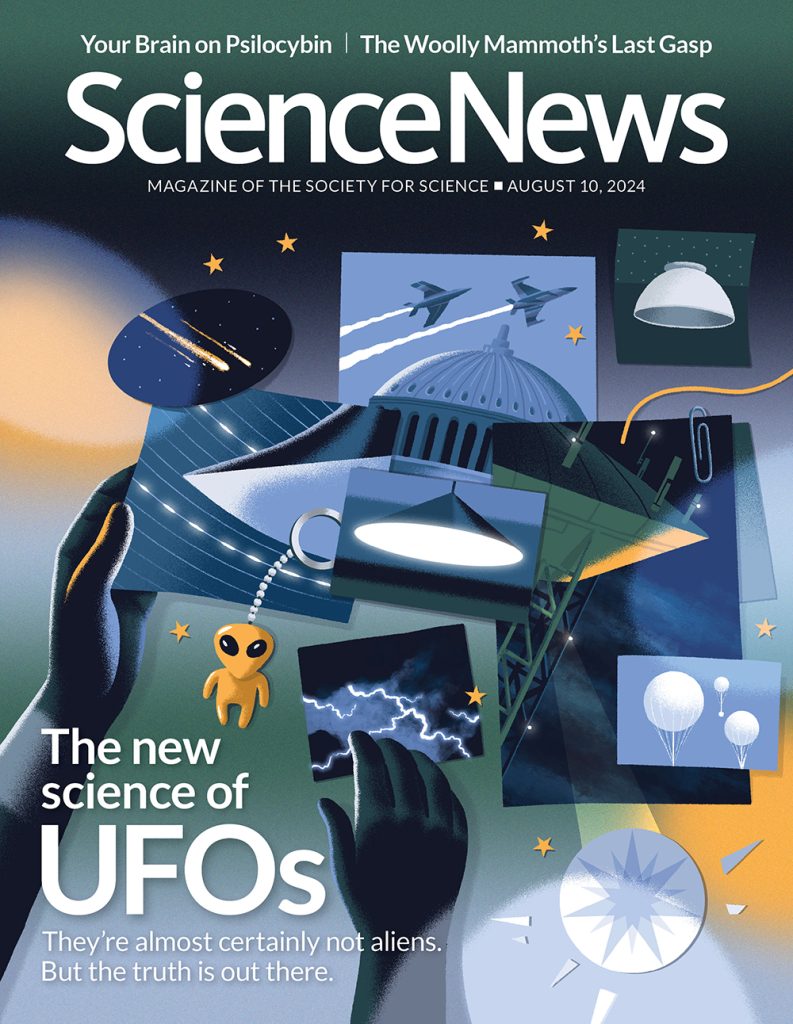In a recent study, a high dose of the psychedelic psilocybin was found to temporarily dissolve brain networks. This research was reported by Laura Sanders in an article titled “Psilocybin erases brain ‘fingerprints’”. In the study, a generic form of the stimulant Ritalin was used as a control against psilocybin. It can be challenging to design studies involving psychedelics due to the obvious effects that these drugs have on both researchers and participants. While the control drug, methylphenidate, and psilocybin produce different experiences, they share some similarities in terms of affecting chemical messengers in the brain and increasing arousal levels in the body.
Another interesting story highlights the immunity of Sierra Nevada yellow-legged frogs to the deadly chytrid fungus called Bd. This discovery suggests potential ways to save frog species worldwide. Reader Devin J. Starlanyl reflected on the importance of frog conservation in his community after reading this story. He expressed his newfound understanding of the threats faced by frogs in local ecosystems and the impact of their presence on his daily life. Starlanyl plans to contact the conservation commission to discuss strategies for protecting the health of his local frogs and environment.
In a separate article titled “UFOs get a rebrand”, it was discussed that UFOs are unlikely to be aliens, leading scientists to search for the true origins of these unidentified anomalous phenomena, now known as UAPs. Reader Don Wolman shared a historical anecdote about alleged UFO sightings in Utah during the 1960s. A 1978 paper proposed that these mysterious light displays were more likely caused by swarms of spruce budworm moths, rather than extraterrestrial beings. The insects’ interaction with electrified air in the sky created a phenomenon known as St. Elmo’s fire, resulting in glowing plasma around objects in an electrically charged field.
The implications of the psilocybin study and the frog immunity discovery showcase the diverse range of scientific research being conducted in various fields. By exploring the effects of psychedelic substances on brain networks and identifying natural immunity in frog populations, researchers are advancing our understanding of complex biological processes. The discussions around UFO sightings and potential explanations for these phenomena also highlight the importance of critical thinking and evidence-based reasoning in scientific inquiries. Readers are encouraged to engage with these topics and consider the broader implications for conservation efforts and our understanding of the universe.
Overall, these stories provide insights into the ongoing scientific investigations that seek to unravel complex phenomena and find solutions to pressing challenges. Whether studying the effects of psychedelics on brain function, identifying immune mechanisms in amphibians, or debunking myths surrounding UFO sightings, researchers are dedicated to expanding knowledge and promoting evidence-based inquiry. Readers are encouraged to further explore these topics and engage with scientific literature to enhance their understanding of the natural world and the mysteries that continue to captivate human curiosity. Through continued research and collaboration, scientists aim to address pressing issues and pave the way for innovative solutions in various fields of study.


